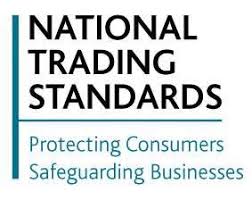 Major changes have been announced regarding Material Information guidance, which was designed and implemented to help support sales and letting agents meet their legal obligations under the Unfair Trading Regulations 2008.
Major changes have been announced regarding Material Information guidance, which was designed and implemented to help support sales and letting agents meet their legal obligations under the Unfair Trading Regulations 2008.
Initially introduced in late 2023, the guidance was introduced in phases to help bring standardisation within the sector and assist consumers in making more informed decisions by delivering unified base information regarding properties.
However, all parts of the current Material Information guidance have been withdrawn with immediate effect, as of 8 May 2025, due to the new Digital Markets, Competition and Consumers Act 2024 replacing and superseding the initial legislation for which the guidance was based upon.
National Trading Standards are currently in the process of removing all details regarding Material Information guidance from their communications channels.
However, the duty to provide usable ‘Material Information’ is not being scrapped and the risks for non-compliance are potentially much higher – with more substantial penalties from the Competition and Markets Authority expected.
Property agents must now comply with the legal requirements regarding material information in the Digital Markets Competition and Consumers Act (DMCC Act). The new expectations require traders to behave fairly and diligently within their dealings with consumers. A trader might be in breach of it, for example, if they do not provide key information which is material to a decision on a property, act unfairly, mislead, or behave aggressively towards consumers.
The Competition and Markets Authority has so far published the following guidance.
+ General guidance on Unfair Commercial Practices
+ What businesses need to know about unfair commercial practices
+ Guidance on the CMAs approach to consumer protection
Nathan Emerson, CEO of Propertymark, commented: “It is essential that all agents are aware of this crucial announcement and how it fundamentally affects their business and operations. While it’s right to consider there will always be progression within the sector, there has been much time invested in ensuring compliance across the industry regarding Material Information, for it to become superseded by new legislation in less than two years and with limited sector guidance for both consumers and practitioners to rely on, this could cause considerable confusion.”
Lesley Horton, interim Ombudsman, The Property Ombudsman, commented: “Whilst the guidance has been withdrawn, we champion the principle of giving consumers and agents support in understanding what material information should be disclosed upfront.
“Our enquiry and casework data tells us that agents will need guidance to help them understand what is and what is not material information. We remain committed to working with National Trading Standard and industry stakeholder in this respect.
“In the interim, our experienced decision makers will continue to make fair and reasonable decisions on a case-by-case basis using our Codes as the standard of professional agency practice”
Sean Hooker from Property Redress stated: “Upfront and transparent information is essential for the property sector to act effectively and fairly.
“The work done by many in the industry to ensure the material information is ingrained into the culture and practices of professionals in both property sales and lettings over recent years has been invaluable in raising standards and protecting consumers.
“Whilst we at Property Redress have been at the forefront of resolving issues between agents and their customers there is a real need for clear and robust guidance to help prevent damaging mistakes being made.
“We will however continue to resolve the complaint’s raised with us following the principles and values established, but also to apply the strengthened measures in the new legislation.”
Paul Offley, compliance officer at The Guild of Property Professionals, added: “The Guild has consistently championed initiatives that enhance transparency and consumer protection. The phased rollout of Material Information guidance was a significant step in that direction, and our members invested considerable time and resources to adapt their processes and ensure compliance. We understood this to be a progressive journey towards greater clarity for everyone involved in property transactions.”
He continued, “It is therefore concerning that this established guidance has been withdrawn so abruptly, less than two years into its implementation. While we recognise that legislation evolves, the speed of this change, with the DMCC Act now taking precedence, has the potential to cause considerable confusion for both practitioners and consumers, especially given the current lack of sector-specific guidance for the new Act.”
“We will continue to work with our members to help raise awareness and to ensure consumers are provided with the information they need to make an informed transactional decision.”


